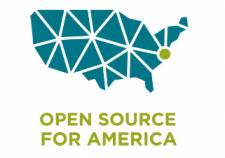 As I noted last week, the British government recently came out strongly in favor of royalty free standards and active consideration of open source software in public procurement. As expected, this decision was greeted with less than universal enthusiasm. One trade group that predictably reacted negatively was the Business Software Alliance, an association that supports the robust preservation of rights in patents. The BSA had previously lobbied actively (and successfully) to delete a similar position from the new version of the European Interoperability Framework (EIF).
As I noted last week, the British government recently came out strongly in favor of royalty free standards and active consideration of open source software in public procurement. As expected, this decision was greeted with less than universal enthusiasm. One trade group that predictably reacted negatively was the Business Software Alliance, an association that supports the robust preservation of rights in patents. The BSA had previously lobbied actively (and successfully) to delete a similar position from the new version of the European Interoperability Framework (EIF).
According to a story posted at ZDNet.co.uk this Tuesday, the BSA released objections to the new British government policy, stating in part:
BSA strongly supports open standards as a driver of interoperability; but we are deeply concerned that by seeking to define openness in a way which requires industry to give up its intellectual property, the UK government's new policy will inadvertently reduce choice, hinder innovation and increase the costs of e-government.
 The U.K. has become the latest country to conclude that for information and communications technology (ICT) procurement purposes, “open standards” means “royalty free standards.” While apparently falling short of a legal requirement, a Cabinet Office Procurement Policy Note recommends that all departments, agencies, non-departmental bodies and “any other bodies for which they are responsible” should specify open standards in their procurement activities, unless there are “clear business reasons why this is inappropriate.”
The U.K. has become the latest country to conclude that for information and communications technology (ICT) procurement purposes, “open standards” means “royalty free standards.” While apparently falling short of a legal requirement, a Cabinet Office Procurement Policy Note recommends that all departments, agencies, non-departmental bodies and “any other bodies for which they are responsible” should specify open standards in their procurement activities, unless there are “clear business reasons why this is inappropriate.”
 For some time now, I have been meaning to write a series of blog posts setting forth my views on best practices in forming and governing open source foundations. Why? Because despite the increasing reliance of just about every part of our modern world (government, finance, defense, and so on) on open source software (OSS) and Free and Open Source Software (FOSS), there has been very little written on the subject.
For some time now, I have been meaning to write a series of blog posts setting forth my views on best practices in forming and governing open source foundations. Why? Because despite the increasing reliance of just about every part of our modern world (government, finance, defense, and so on) on open source software (OSS) and Free and Open Source Software (FOSS), there has been very little written on the subject.
That means that neither a community nor a corporation has much to refer to in creating the kind of governance structure most likely to ensure that the intentions of the founders are carried out, that the rights of contributors are respected, and that the code upon which end users will rely is properly maintained into the future.
 Over the last few months, I've frequently pointed out the vulnerability of important open source projects that are supported and controlled by corporate sponsors, rather than hosted by independent foundations funded by corporate sponsors. One of the examples I've given is SUSE Linux, which has been hosted and primarily supported by Novell since that company acquired SuSE Linux AG in 2003. Novell, as you know, is expected to be acquired by a company called Attachmate a few weeks from now, assuming approval of the transaction by the Novell stockholders and by German competition regulators.
Over the last few months, I've frequently pointed out the vulnerability of important open source projects that are supported and controlled by corporate sponsors, rather than hosted by independent foundations funded by corporate sponsors. One of the examples I've given is SUSE Linux, which has been hosted and primarily supported by Novell since that company acquired SuSE Linux AG in 2003. Novell, as you know, is expected to be acquired by a company called Attachmate a few weeks from now, assuming approval of the transaction by the Novell stockholders and by German competition regulators.
Recently, the future of the SUSE Linux Project (as compared to the Novell commercial Linux distribution based on the work of that project) has become rather murky, as reported by Pamela Jones, at Groklaw. Apparently, Novell is facilitating some sort of spin out of the Project, which is good but peculiar news.
 Abstract: The last twenty-five years have been marked by an explosion of consortia formed to develop, promote and/or otherwise support standards enabling information and communications technology. The reasons for forming a new consortium, as compared to adding to the work program of an existing body, include the absence in such organizations of appropriate technical expertise, interest, and/or supporting programs, as well as the benefits to be gained from directing all of the resources and efforts of a new consortium to the achievement of a set of specific objectives. This article reviews the benefits to be obtained from launching a new consortium, the criteria that should be used to determine whether doing so is appropriate, the programs and functionalities available for achieving specific goals, and the stages of institutional maturity at which each function should be added in order to accomplish a new organization's mission.
Abstract: The last twenty-five years have been marked by an explosion of consortia formed to develop, promote and/or otherwise support standards enabling information and communications technology. The reasons for forming a new consortium, as compared to adding to the work program of an existing body, include the absence in such organizations of appropriate technical expertise, interest, and/or supporting programs, as well as the benefits to be gained from directing all of the resources and efforts of a new consortium to the achievement of a set of specific objectives. This article reviews the benefits to be obtained from launching a new consortium, the criteria that should be used to determine whether doing so is appropriate, the programs and functionalities available for achieving specific goals, and the stages of institutional maturity at which each function should be added in order to accomplish a new organization's mission.
Have you discovered The Alexandria Project?
 Although the continuing debate over the future of Java and OpenOffice should not surprise, the fact that developers have allowed themselves to be caught in this position to begin with should. The reason? The community has overestimated the power of software licenses – even FOSS licenses – to protect their rights, and opted not to take advantage of other tools that could.
Although the continuing debate over the future of Java and OpenOffice should not surprise, the fact that developers have allowed themselves to be caught in this position to begin with should. The reason? The community has overestimated the power of software licenses – even FOSS licenses – to protect their rights, and opted not to take advantage of other tools that could.
Yes, today’s restrictive licenses embody powerful rights, but those rights are no stronger than the ability of their owners to assert them. Placing all one’s defensive reliance on a single legal tool can make no more sense than relying on a single weapons system. Why? Because it’s all too easy to be outflanked by an enemy with a more diverse armament. And ever since Oracle's acquisition of Sun, the traditional defenses of open source developers have been about as effective as France's post-World War I Maginot Line.
Have you discovered The Alexandria Project?
 This morning brought the significant - and decade overdue – announcement of the launch of an independent foundation to host development of the open source, ODF-compliant OpenOffice productivity suite. The good news of that lost decade is that under Sun’s ownership and control, the OpenOffice suite became the most successful and widely implemented alternative to Microsoft’s Office, providing at least some degree of competition in a product niche where it had been missing for far too long.
This morning brought the significant - and decade overdue – announcement of the launch of an independent foundation to host development of the open source, ODF-compliant OpenOffice productivity suite. The good news of that lost decade is that under Sun’s ownership and control, the OpenOffice suite became the most successful and widely implemented alternative to Microsoft’s Office, providing at least some degree of competition in a product niche where it had been missing for far too long.
The bad news is that in the same time period the OpenOffice suite could have become so much more. As with other single-company controlled efforts in the past (e.g., the Eclipse Foundation, before IBM spun it out into an independent organization), other companies that could have, and would have, made significant contributions of personnel, funding and promotion stood aside.
Have you discovered The Alexandria Project?
 Last summer, a new organization was announced with the goal of promoting the uptake of open source software by the U.S. federal government. It's mission was described as follows:
Last summer, a new organization was announced with the goal of promoting the uptake of open source software by the U.S. federal government. It's mission was described as follows:
The mission of OSA is to educate decision makers in the U.S. Federal government about the advantages of using free and open source software; to encourage the Federal agencies to give equal priority to procuring free and open source software in all of their procurement decisions; and generally provide an effective voice to the U.S. Federal government on behalf of the open source software community, private industry, academia, and other non-profits.
Now that organization has completed its first quite successful year of operations, and it's decided to celebrate that event by announcing an awards program to recognize those that have been most influential in advancing its goals.
Have you discovered The Alexandria Project?
 As you may recall, the CodePlex Foundation indicated in January that it expected to name a permanent Executive Director within a few weeks' time. That has now happened, and in the "small world" department, the new ED happens to be Paula Hunter - someone I've known for years, and worked with several times in the past. The full press release is below. Paula is someone I like and respect a lot, and a great choice for CodePlex.
As you may recall, the CodePlex Foundation indicated in January that it expected to name a permanent Executive Director within a few weeks' time. That has now happened, and in the "small world" department, the new ED happens to be Paula Hunter - someone I've known for years, and worked with several times in the past. The full press release is below. Paula is someone I like and respect a lot, and a great choice for CodePlex.
As you'll see from the announcement, one of Paula's prior jobs was as the Executive Director of UnitedLinux. UL was a client of mine, and that's where I first met Paula. And if you've never heard the saga of UL, it's a rather fascinating story.
 Earlier this week, I noted the fact that the 100 day mark for the CodePlex Foundation had passed (on December 19) without any comment from the Foundation on how they had fared against their aggressive goals for that time period, including the replacement of the founding, interim Board of Directors, with a permanent board.
Earlier this week, I noted the fact that the 100 day mark for the CodePlex Foundation had passed (on December 19) without any comment from the Foundation on how they had fared against their aggressive goals for that time period, including the replacement of the founding, interim Board of Directors, with a permanent board.
That blog entry sparked a call from the Foundation's PR firm, and an opportunity for me to spend an hour on the phone with Sam Ramji, the interim President of the Foundation, and Foundation Deputy Director Mark Stone during which we covered a lot of ground, including what's been accomplished so far, what the Foundation has learned so far, how that has affected its planning, and what we can expect to be announced in the short term and long term future. They also informed me that a press release covering some of the same topics would be issued today. That announcement was posted to the Foundation Web site at Noon, and you can find it here (as usual, it's also pasted in at the end of this blog entry).
With that as prelude, here's what we talked about, and here's what I learned.
 As I noted last week, the British government recently came out strongly in favor of royalty free standards and active consideration of open source software in public procurement. As expected, this decision was greeted with less than universal enthusiasm. One trade group that predictably reacted negatively was the Business Software Alliance, an association that supports the robust preservation of rights in patents. The BSA had previously lobbied actively (and successfully) to delete a similar position from the new version of the European Interoperability Framework (EIF).
As I noted last week, the British government recently came out strongly in favor of royalty free standards and active consideration of open source software in public procurement. As expected, this decision was greeted with less than universal enthusiasm. One trade group that predictably reacted negatively was the Business Software Alliance, an association that supports the robust preservation of rights in patents. The BSA had previously lobbied actively (and successfully) to delete a similar position from the new version of the European Interoperability Framework (EIF).  The U.K. has become the latest country to conclude that for information and communications technology (ICT) procurement purposes, “open standards” means “royalty free standards.” While apparently falling short of a legal requirement, a Cabinet Office Procurement Policy Note recommends that all departments, agencies, non-departmental bodies and “any other bodies for which they are responsible” should specify open standards in their procurement activities, unless there are “clear business reasons why this is inappropriate.”
The U.K. has become the latest country to conclude that for information and communications technology (ICT) procurement purposes, “open standards” means “royalty free standards.” While apparently falling short of a legal requirement, a Cabinet Office Procurement Policy Note recommends that all departments, agencies, non-departmental bodies and “any other bodies for which they are responsible” should specify open standards in their procurement activities, unless there are “clear business reasons why this is inappropriate.” For some time now, I have been meaning to write a series of blog posts setting forth my views on best practices in forming and governing open source foundations. Why? Because despite the increasing reliance of just about every part of our modern world (government, finance, defense, and so on) on open source software (OSS) and Free and Open Source Software (FOSS), there has been very little written on the subject
For some time now, I have been meaning to write a series of blog posts setting forth my views on best practices in forming and governing open source foundations. Why? Because despite the increasing reliance of just about every part of our modern world (government, finance, defense, and so on) on open source software (OSS) and Free and Open Source Software (FOSS), there has been very little written on the subject Over the last few months, I've frequently pointed out the vulnerability of important open source projects that are supported and controlled by corporate sponsors, rather than hosted by independent foundations funded by corporate sponsors. One of the examples I've given is SUSE Linux, which has been hosted and primarily supported by Novell since that company acquired SuSE Linux AG in 2003. Novell, as you know, is expected to be acquired by a company called Attachmate a few weeks from now, assuming approval of the transaction by the Novell stockholders and by German competition regulators.
Over the last few months, I've frequently pointed out the vulnerability of important open source projects that are supported and controlled by corporate sponsors, rather than hosted by independent foundations funded by corporate sponsors. One of the examples I've given is SUSE Linux, which has been hosted and primarily supported by Novell since that company acquired SuSE Linux AG in 2003. Novell, as you know, is expected to be acquired by a company called Attachmate a few weeks from now, assuming approval of the transaction by the Novell stockholders and by German competition regulators. Although the continuing debate over the future of Java and OpenOffice should not surprise, the fact that developers have allowed themselves to be caught in this position to begin with should. The reason? The community has overestimated the power of software licenses – even FOSS licenses – to protect their rights, and opted not to take advantage of other tools that could.
Although the continuing debate over the future of Java and OpenOffice should not surprise, the fact that developers have allowed themselves to be caught in this position to begin with should. The reason? The community has overestimated the power of software licenses – even FOSS licenses – to protect their rights, and opted not to take advantage of other tools that could. This morning brought the significant - and decade overdue –
This morning brought the significant - and decade overdue –  Last summer,
Last summer,  As you may recall, the CodePlex Foundation
As you may recall, the CodePlex Foundation